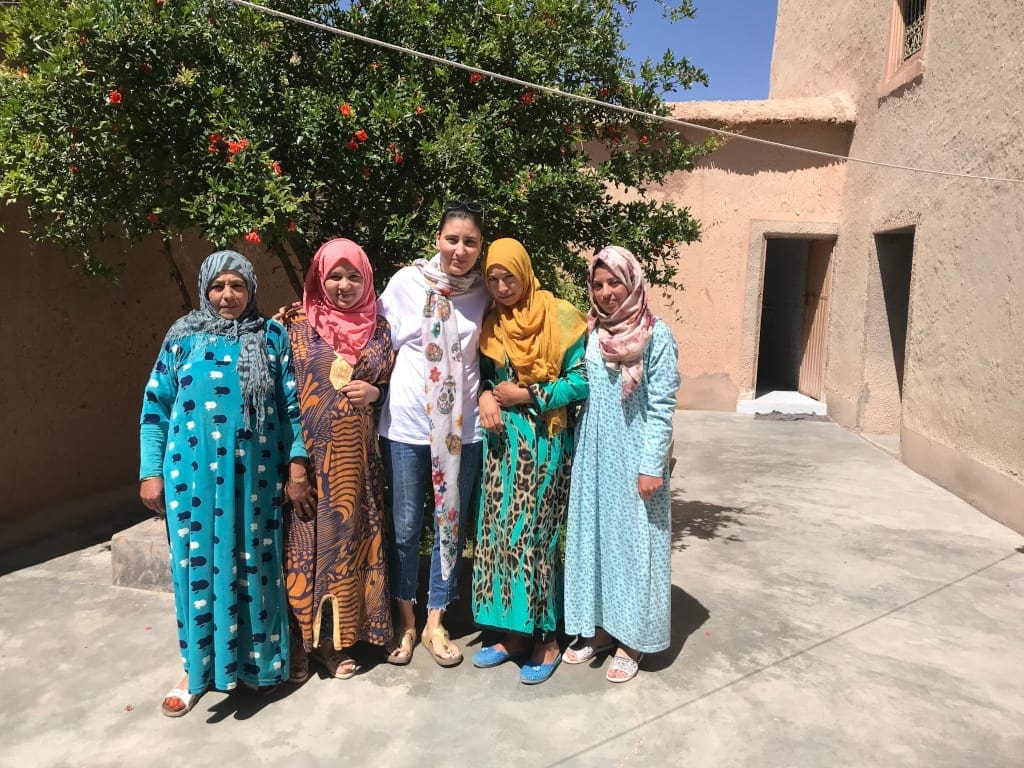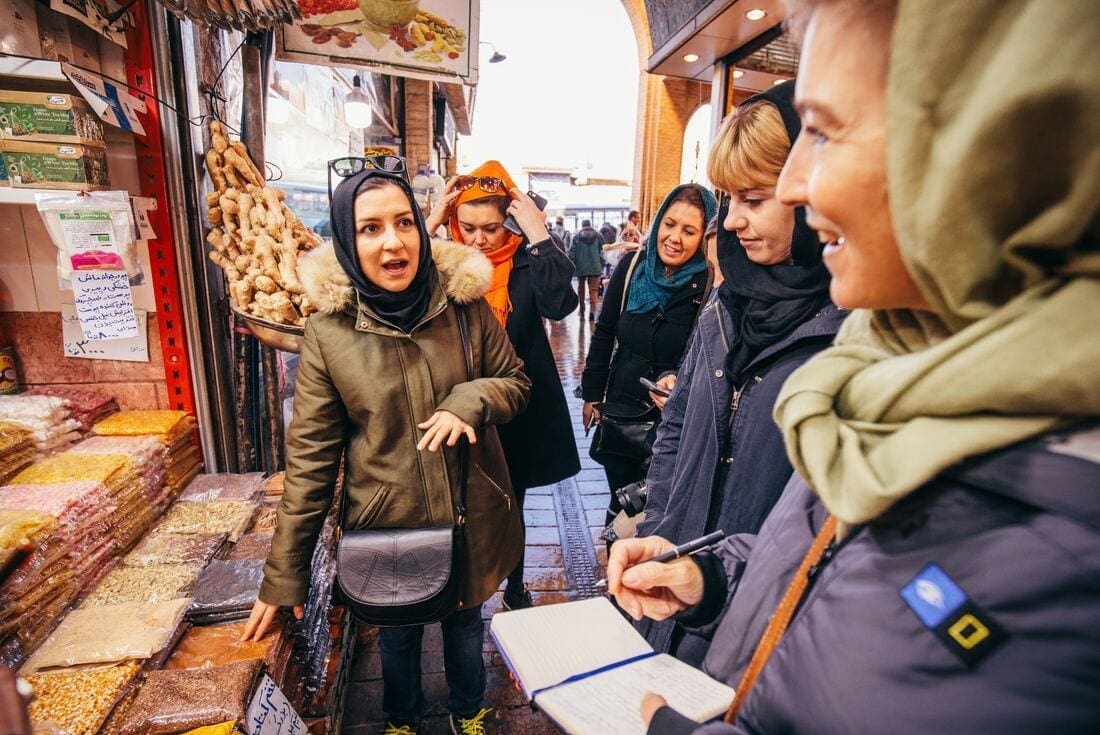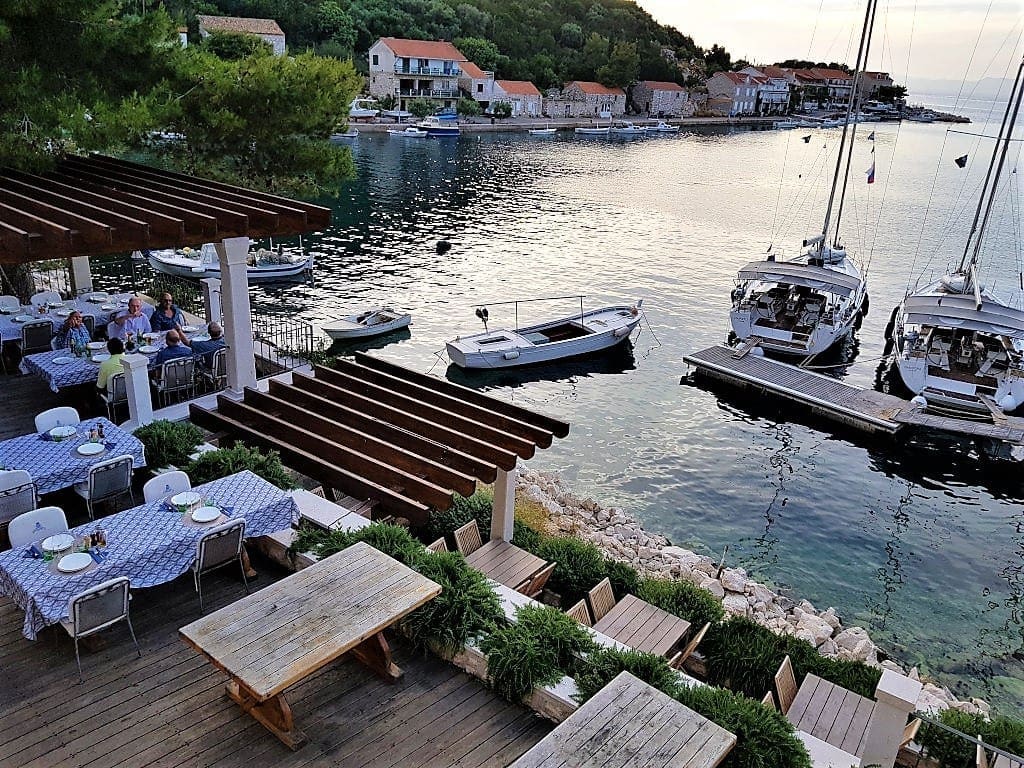Zina Bencheikh, Managing Director EMEA for Intrepid Travel, explains the relationship between their customers and local communities, as well as the company’s commitment to becoming Climate Positive.
You took up your role in May last year. What was it like taking the reins in the middle of a pandemic?
It obviously wasn’t what I expected! It has been an incredibly challenging year, but I’m proud of the way our team has pulled together to navigate our way through the pandemic. We have had to be more agile than ever before as the environment is constantly changing. On the positive side, Covid-19 has accelerated exciting projects that we have long wanted to do, such as launching our largest ever range of UK and Ireland holidays. We’ve also put this time to good use by advocating for a more responsible rebuild of the travel industry.
Do you feel that Covid has changed the way that people now view travelling, and the way they choose their holidays?
The pandemic has made people appreciate travel more than ever, but also more aware of the impact of their choices. I’d expect to see a shift towards sustainable travel and customers wanting to book with travel companies who are doing right by the planet and its communities. Moments like the transformation of Venice’s canals and sea turtles thriving in Thailand amid the worldwide shutdowns highlighted tourism’s impact when it’s at full force. People want to be sure that their future travel decisions are responsible and do not bring any harm to the places they’re going to visit.
Flexibility will also be key as travel returns. People will want to book with a trusted agent or tour operator to ensure they have peace of mind. That’s why we’ve introduced a new flexible booking policy allowing customers to change or cancel their trip up to 21 days before departure, and we guarantee a refund if the tour cannot go ahead.
You have worked for Intrepid Travel for more than a decade. How would you summarise its core values especially as regards responsible travel?
I’ve stayed at Intrepid for ten years because its values are very close to my heart. I’ve seen for myself the difference tourism can make to a community when it’s done well. We believe that travel can be a force for good in the world. It shouldn’t only have a minimal impact – it should actually benefit local people, communities and the planet.

What does responsible travel mean to you?
For me, responsible travel means making the right choices, the choices that respect and benefit people, their cultures and environment. I always try to support local businesses where I can, whether that’s staying at a family-owned hotel, eating local food and shopping for locally made gifts. Taking public transport is a great way to meet people and see local life up close.
On your website, you claim that travellers ‘leave a lighter footprint’ and ‘invest in local communities’, can you provide me with real examples about how this works?
We do everything we can to mimimise our environmental footprint. We have been a carbon neutral business since 2010. That means we measure, reduce and offset the emissions generated by our trips, travellers and offices. Last year, we became the first tour operator to commit to science-based sustainability targets.
For travellers, that means traveling the local way – staying, eating and travelling local. Where possible, we minimise internal flights and use more environmentally friendly alternatives such as high speed rail.
Travellers might also have the chance to stay at one of our community-based tourism (CBT) projects. We actively work with communities and a range of local partners to support the development of new CBT experiences in destinations that otherwise wouldn’t see the benefits of tourism. Then, when we visit the communities on our itineraries, our travellers have the opportunity to connect with the local people and make a positive impact.
We also support grassroots projects around the world through our non-profit The Intrepid Foundation. At the moment, we’re running a Covid-19 Relief appeal to support communities in crisis during the pandemic.
What are your top responsible travel tips for our readers?
Support locally owned businesses, hotels, restaurants and other services. Eat local food and drink local brands and brews. Use public transport, hire a bike or walk where convenient – you’ll meet local people and get to know the place.
It’s best not to eat in restaurants, shop in stores or visit local shows, markets or zoos that promote cruelty or exploitation of endangered species.
Shop from traditional artisans and for locally made products, helping keep traditional crafts alive and favour local products over imported items. Bargain if that is a local practice, but bear in mind that a small amount to you could be extremely important to the seller.
After returning home, think about how you can support programmes and organisations that are working to protect the welfare, culture and environment of where you’ve been lucky to visit.
In 2019 Intrepid Travel stated that it was going ‘climate positive’. What does this mean and what positive steps have you taken so far?

Going climate positive means not just offsetting our carbon emissions but actually improving the environment by removing additional carbon dioxide from the atmosphere. Our first step was supporting an innovative seaweed project though the Intrepid Foundation. The Foundation partnered with The Climate Foundation to fund research through the University of Tasmania for Australia’s first marine permaculture platform.
Seaweed performs a vital role in the Earth’s climate regulation process, pulling carbon dioxide out of the ocean and replacing it with oxygen. And kelp, the world’s fastest-growing plant, is thought to be the key to fighting global warming.
But over 95% of the world’s kelp forests have been lost to climate change – so scientists are now pioneering seaweed ‘farms’ in key locations all over the globe: vast marine permaculture projects that let kelp and its resident marine life thrive, and give the world’s climate system a much-needed boost. Intrepid donated AU$600,000 to kick-start Australia’s first seaweed-cultivation project.
You are part of the Future of Tourism Coalition. Why did you join, and what do you hope to achieve from your involvement?
The aim of the Future of Tourism Coalition closely aligns with our own values and mission as tourism recovers. By being part of it, we hope to share our own experiences on our sustainable tourism journey and learn from other organisations. It’s vital that the industry collaborates as we move towards a more sustainable type of tourism post Covid-19.
What other responsible travel initiatives does Intrepid Travel have planned for 2021 and beyond?

This year we have an exciting new partnership with WWF in Croatia to develop eco-tourism to the remote island of Lastovo. Our aim is to develop tourism that benefits the local community and preserves the island’s culture, identity and its natural resources.
One of the main issues on the island is overfishing – the number of fish are in decline. As it’s becoming harder for fishers to earn a decent living from fishing alone, we have created an experience where visitors can join them on their boat for the day. Travellers have the chance to help the fishers get their catch of the day and enjoy a freshly made seafood lunch on board. They’ll also learn about sustainable fishing and the journey from sea to table. The money earned from this allows the fishers to take less fish from the sea, helping to preserve the ecosystem.
Finally, there seems to be lots of negativity about travel at the moment. Do you agree? What do you see as the future of tourism?
I would say there is a lot of uncertainty about travel, which isn’t surprising given the twists and turns of the last year. I’ve no doubt that people want to go on holiday, but they need the reassurance from travel companies that their money will be protected should their trip be unable to go ahead. My advice is to book with a trusted travel agent or tour operator and look out for the Atol and Abta logos. Then there’s no reason why you can’t book and have something wonderful to look forward to.